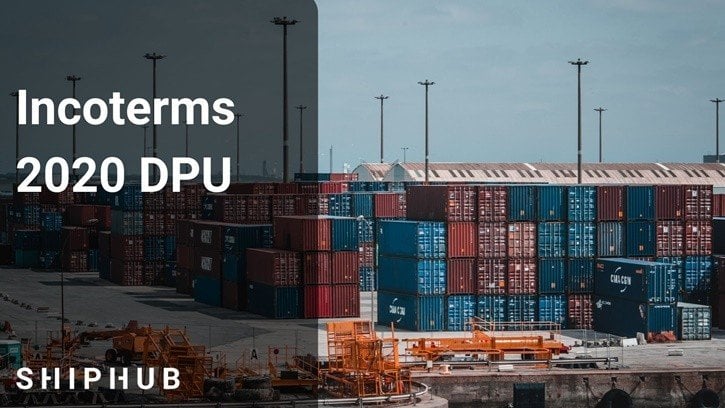Incoterms are rules of trade. They specify who (buyer or seller) incurs transport costs, export, and import charges or risks associated with the transport of goods. The Incoterms 2010 are currently applied; however, new ones come into force on 1 January 2020. Incoterms 2020 DDP means “Delivered Duty Paid.” The seller is responsible for organizing transport and paying duties and taxes. The exporter bears a higher risk. Comparing DDP 2010 and DDP 2020, we can see that there have been a few changes. Some issues have been further clarified to avoid misunderstandings.
Cost-sharing – Incoterms 2020 DDP
| The seller takes: | The buyer takes: |
| all costs of control activities (quality control, measurement, weighing of goods); | cost of the products according to the contract of sale; |
| costs for all formalities related to customs clearance, export, import, and transit. If he is unable to pay for import clearance and would prefer to leave it in the hands of the buyer, then the seller should consider Incoterms DAP or DPU; | charges relating to goods after the delivery; |
| costs for unloading at the destination, if it was included in the contract of carriage (the seller is not entitled to recover these charges unless otherwise was agreed by the parties); | unloading costs (unless these costs have been taken into account by the seller under the contract of carriage); |
| cost of delivery of the delivery note; | any additional costs incurred by the seller if the buyer does not comply with the obligation to assist in obtaining the necessary documents or if he does not inform the exporter of the time and place of delivery. |
| charges paid by the buyer in connection with the assistance in the provision of documents relating to the transport. |
What are the obligations of the seller?
- The seller is obliged to deliver the goods and all necessary documents to a destination agreed upon by both parties and at a specified date (the documents may be in paper or electronic form),
- He must properly pack and label the goods so that they can be transported (unless the parties have agreed otherwise in advance),
- The seller must provide the buyer with all the information/documents required to enable the buyer to take delivery of the goods.
What are the obligations of the buyer?
- He is obliged to collect the goods,
- The buyer is not obliged to conclude the insurance contract, but must provide the seller (at his request) the information he needs to obtain insurance,
- The buyer is obliged to assist the seller (at his request) in obtaining all documentation related to import, export and transit,
- If both parties agree that the buyer is obliged to determine the time and place of delivery, he must also notify the seller in advance.
Delivery of goods
It is recommended that the parties precisely specify the destination of the shipment. There are several reasons:
- The risk of loss or damage of the goods passes to the buyer exactly from the moment the products are delivered to the agreed place. Buyers and sellers must be clear when and where the risk is taken over,
- Until the goods are delivered, all costs are borne by the seller. From the moment the goods are delivered, the buyer bears all costs. It is equally important to know when the replacement takes place,
- The seller must conclude a contract and arrange the transport of goods to the designated destination. If he does not do so, he violates the DDP rules and be liable to the buyer for all his losses.
Insurance of the goods on Incoterms 2020 DDP
The seller is not obliged to the buyer to conclude the insurance contract. The buyer also has no such obligation. However, the buyer must provide the seller (at his request) information about the risks and costs that are needed to obtain insurance.
Incoterms 2020 DDP in transport
The DDP 2020 rules can be applied to all modes of transport. Also, it can be implemented in more than one mode of transport.
DDP 2020 and other Incoterms rules
Using Incoterms DDP, the seller has the greatest responsibility. This rule is often misinterpreted. For example, Chinese exporters do not fully understand this rule and often misuse it. That can cause a lot of trouble.





